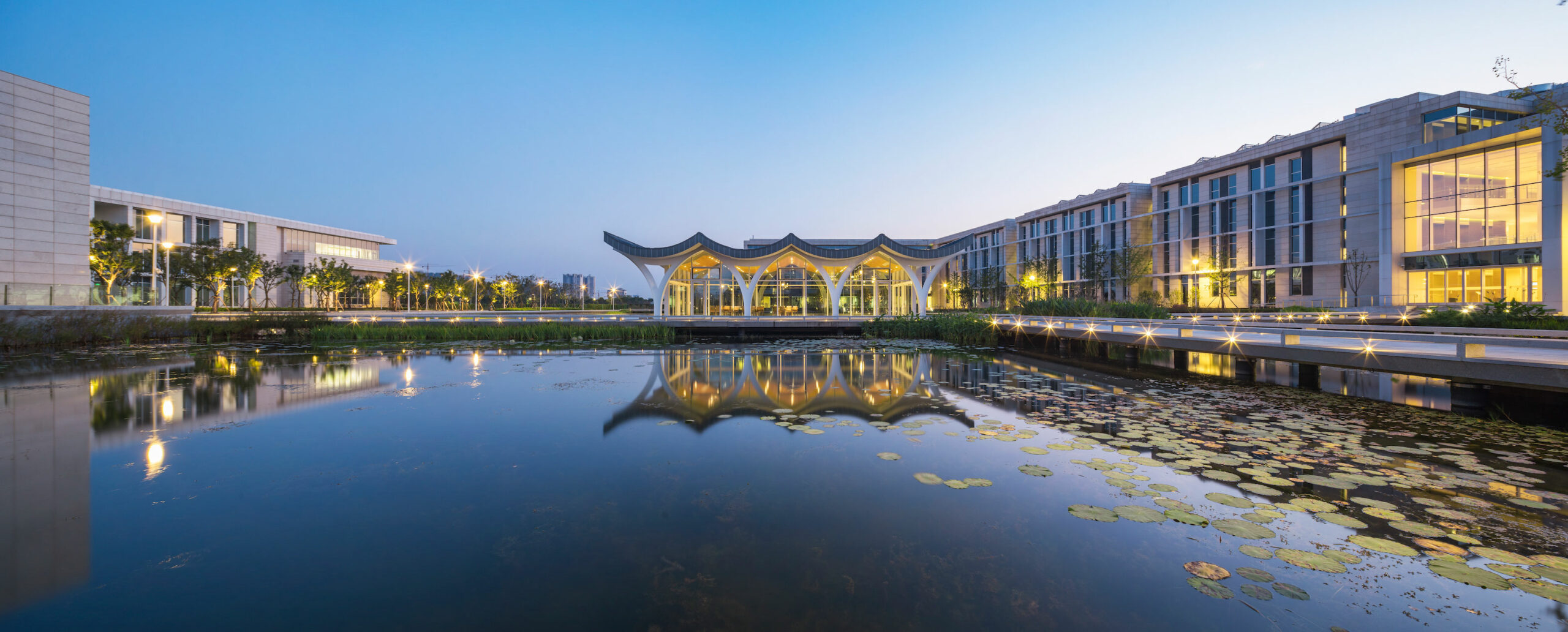
Drawing on the strengths of Duke University and Wuhan University, two global leaders in research and education, DKU can cultivate future leaders and global citizens who are equipped to address pressing environmental and social challenges.
For students seeking a deeper connection with nature, DKU’s partnerships offer unique opportunities. DKU students going on exchange at Duke can immerse themselves in its 7,000 acres of forested land. Students visiting WHU can also enjoy its unique scenery located on the Luojia Mountain beside the scenic East Lake.
Both partners also bring substantial experience in the field of sustainability to the DKU community. Duke University, which achieved carbon neutrality in 2024, brings over two decades of experience in embedding sustainability into every aspect of campus operations, research, teaching, and engagement. Meanwhile, WHU is widely recognized as the leading authority in environmental law and governance research in China. WHU also hosts student-led initiatives focused on animal welfare and implements OECM (Other Effective Area-Based Conservation Measures) policies on campus.
Furthermore, DKU has joined several international sustainability networks, including the United Nations Sustainable Development Solutions Network, the Alliance of Asian Liberal Arts Universities, and the Suzhou Regional Center of Expertise on Education for Sustainable Development. In June 2024, Professor Coraline Goron represented DKU at the International Sustainable Campus Network (ISCN) conference, delivering a joint presentation with Duke and Yale University. These engagements contribute to fostering knowledge exchange with globally recognized sustainability leaders in higher education.
DKU’s progress in campus sustainability would not be possible without the support of Duke University. This support goes beyond enhancing DKU’s research capabilities in sustainability; it also includes facilitating faculty mobility, organizing academic workshops, and enriching student learning experiences by welcoming DKU students to participate in exchange programs with Duke. Duke has also played a key role in helping DKU establish its own sustainability governance structure, drawing on over two decades of experience in building a sustainable campus.
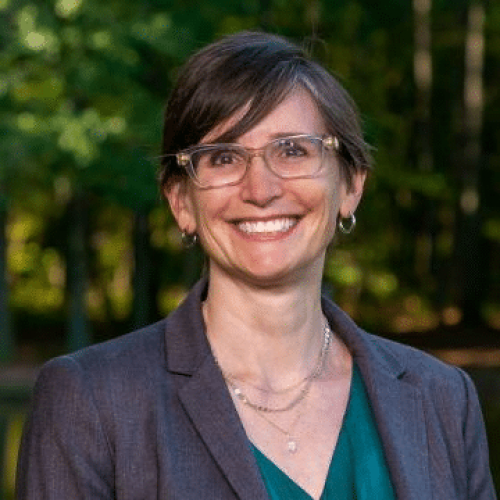
To promote knowledge exchange, Duke has invited DKU faculty and staff to participate in the Climate Commitment Advisory Council (CCAC) led by President and Vice Provost for Climate and Sustainability, Dr. Toddi Steelman under the Duke’s Climate Commitment.
• Professor Coraline Goron, main driver of the CSI and Chair of the DKU Sustainability Committee, serves on the Education Subcommittee.
• Roger Fan, the Senior Director of DKU’s Operations team is part of the Operations Subcommittee.
• Professor Kai Huang, Dean of Research and Lab Infrastructure, contributes to the Research Subcommittee.
Participation in these working groups has directly contributed to the development of DKU’s own sustainability governance structure.
Currently, DKU and Duke researchers are collaborating on several research projects addressing prominent climate issues, using diverse disciplinary perspectives and methods. These projects focus on climate justice, green energy, and climate finance. In May 2025, DKU and Duke organized three thematic workshops on climate justice, climate finance and Chinese carbon trading markets, marking a milestone in the research collaboration between the two sides. These efforts demonstrate a continued commitment to advancing sustainability research, even amid rising political tensions.
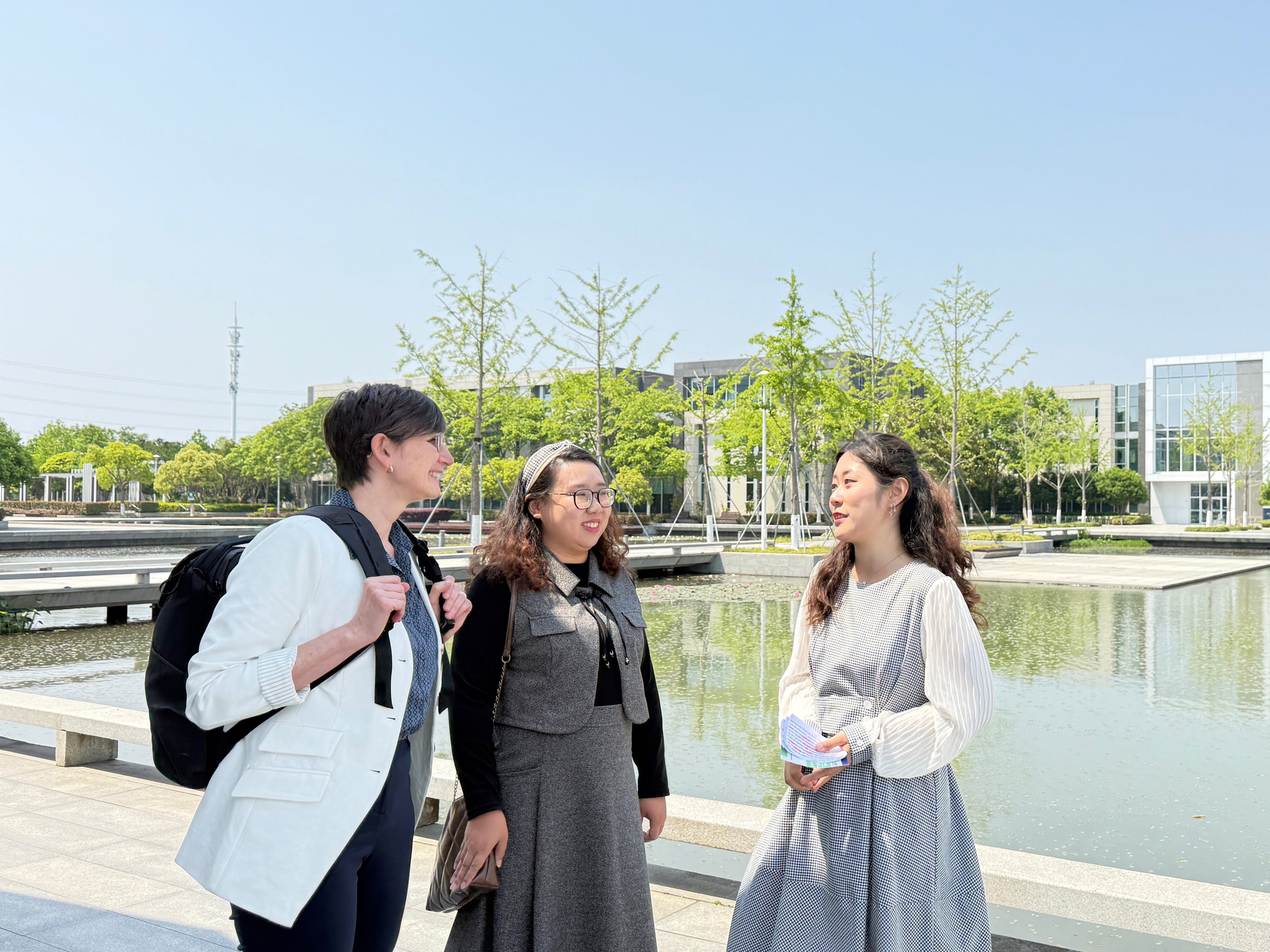
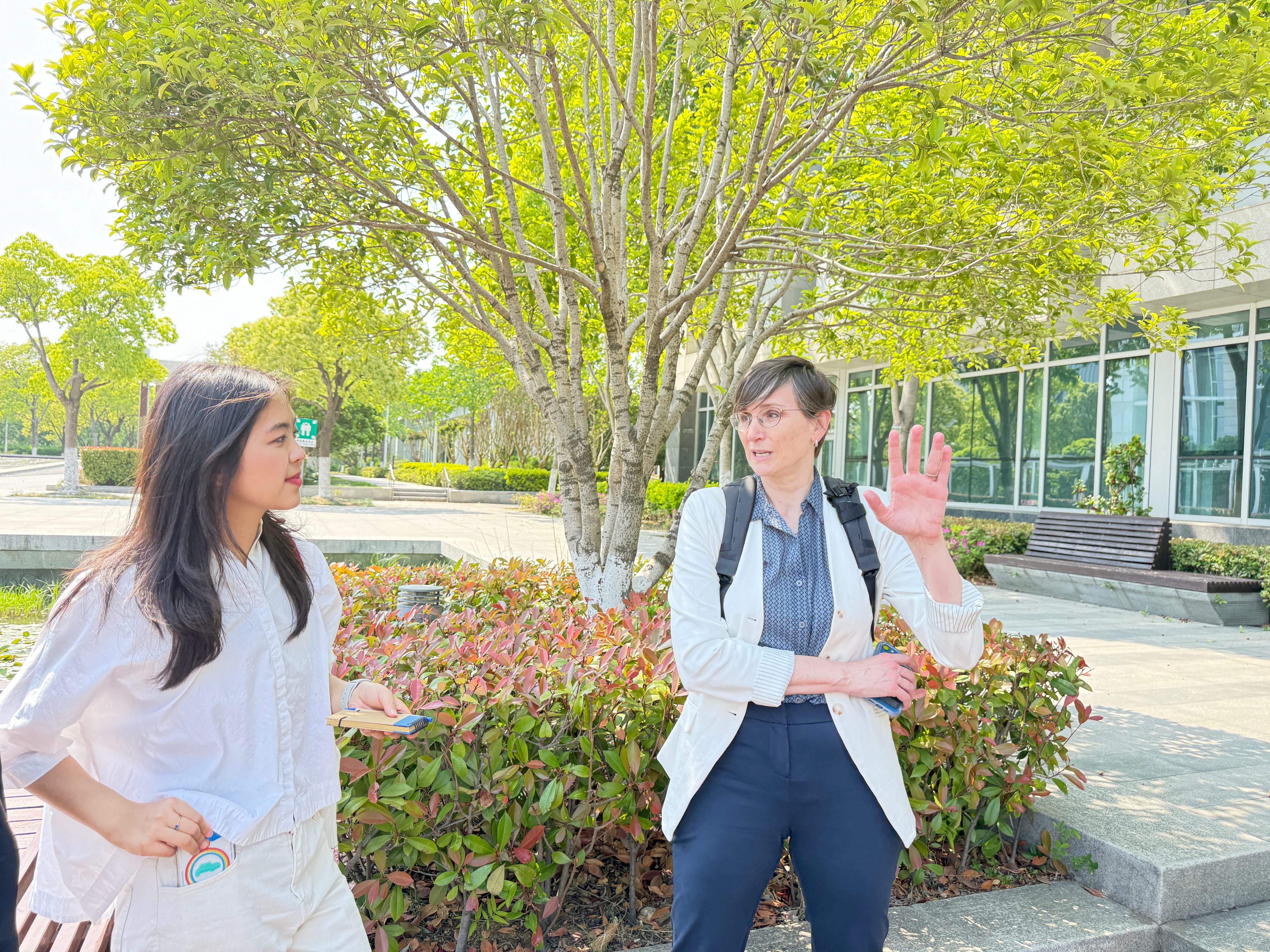
DKU’s new interdisciplinary course Let’s Talk About Climate Change, which was opened to all undergraduate students in 2024, was directly inspired by an existing flagship course of the same name at Duke. Furthermore, through the Duke Climate and Sustainability Teaching Fellowship program, Duke has supported DKU faculty in redesigning courses to integrate sustainability elements. Finally, under the Bass Connections program, DKU and Duke have also co-led classes such as Policy and Economics of China's Nuclear Residential Heating, where students learn about and research real-world challenges.
Beyond these valuable teaching, learning, and research experiences facilitated by Duke, theuniversity has also shared its expertise with the DKU CSI and operations team in areas such asdesigning decarbonization pathways, implementing green certification programs, and more, insupport of DKU’s own sustainable development.
During Dr.Toddi Steelman’s visit to DKU in April 2025, she expressed Duke’s continued support for and collaboration with DKU across all aspects of campus sustainability.
Wuhan University (WHU) has been collaborating with DKU on many fronts since 2013. The ease of student mobility between the two institutions promotes the exchange of ideas, cultures, and academic experiences. In addition to summer programs, semester exchanges, and joint PhD programs, WHU also organizes and hosts the WHU-DKU Cherry Blossom Camp each year during cherry blossom season around March/April. This event offers DKU students the opportunity to explore one of the oldest and most beautiful campuses in China - a campus deeply integrated with and surrounded by nature.
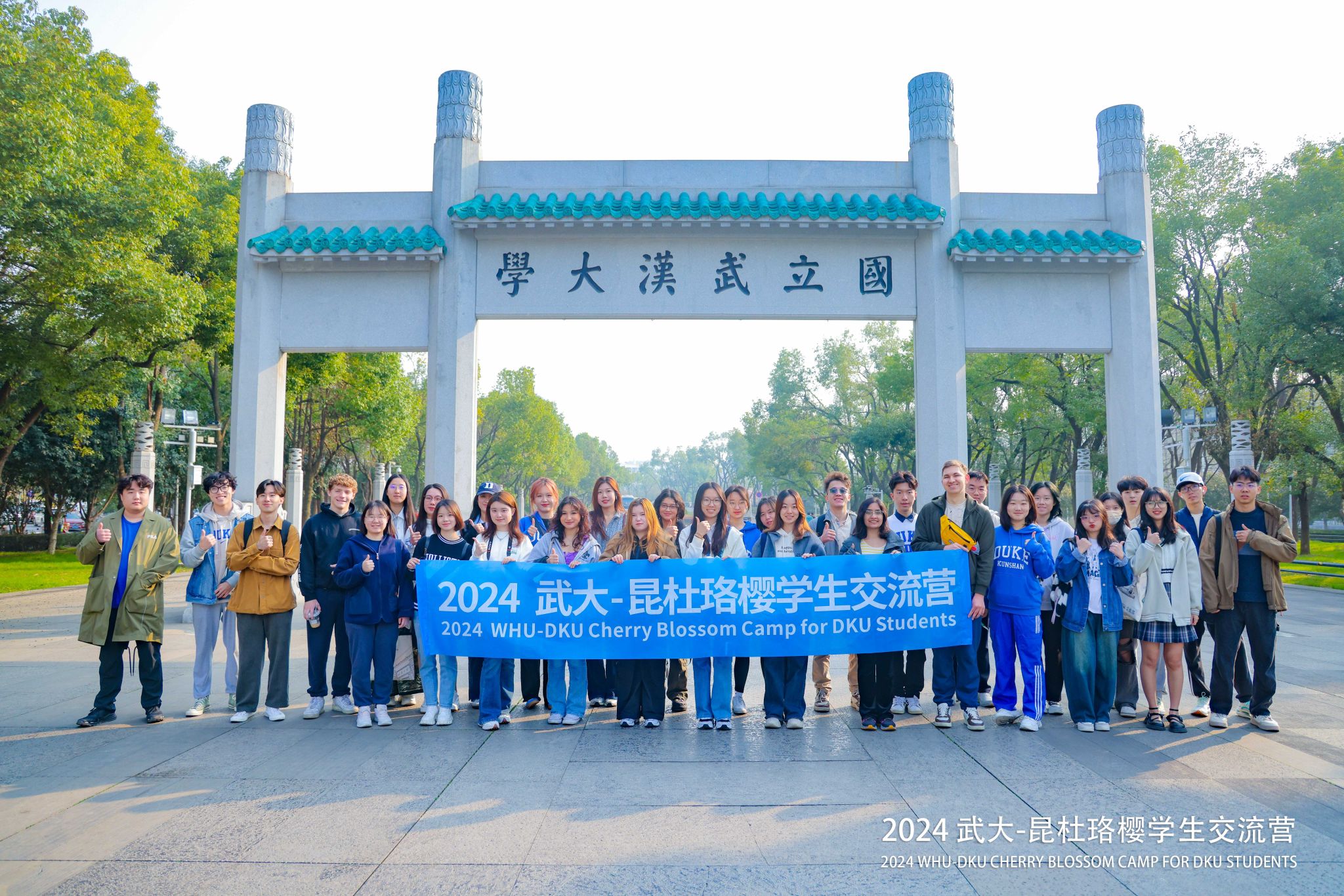
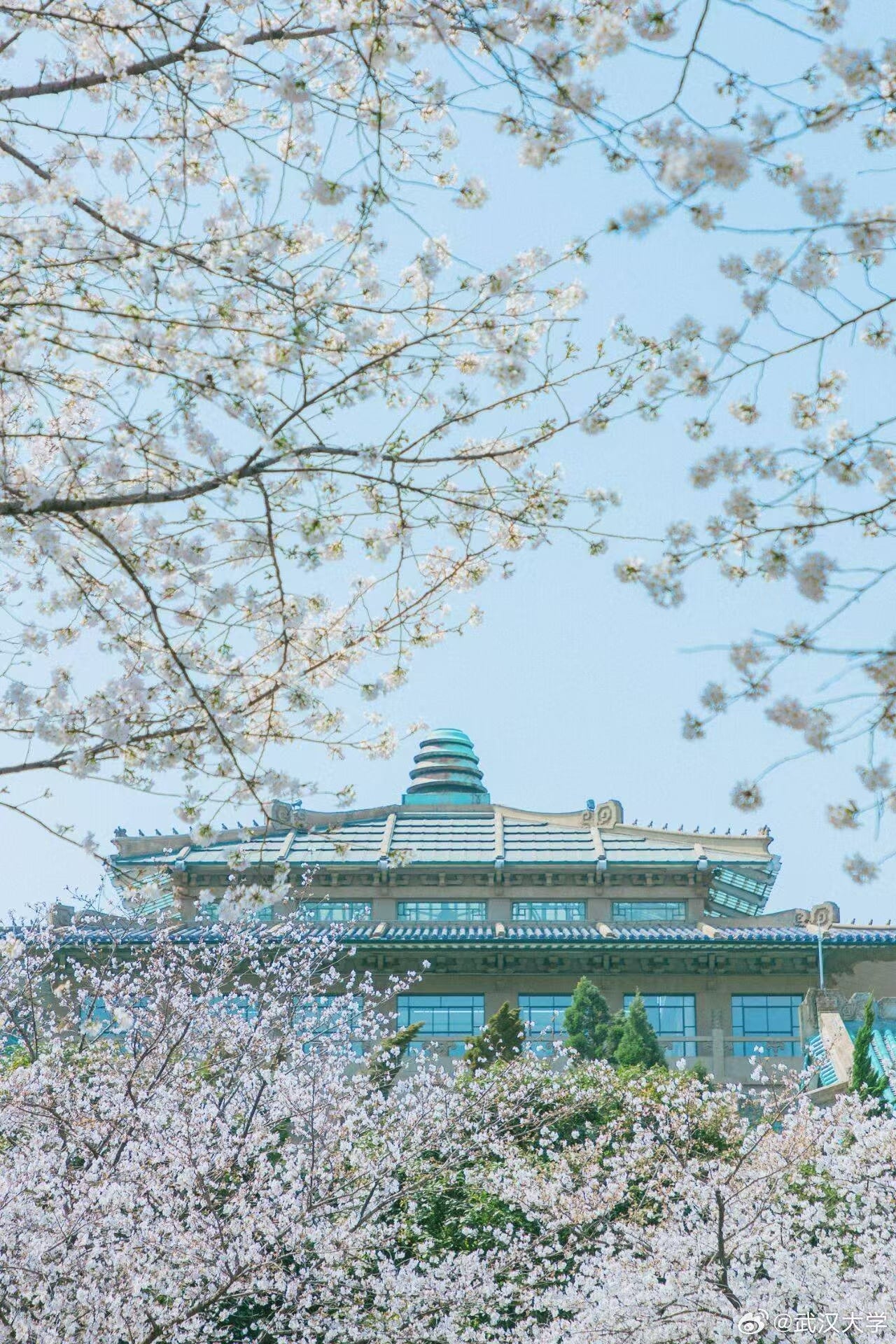

WHU is one of the most academically rigorous higher education institutions in China and is widely regarded as a leader in environmental law research, setting numerous precedents in the field. In 1981, WHU established the Research Institute of Environmental Law - the first of its kind in China with a dedicated focus on environmental and resource protection. The institute also serves as the Secretariat for the Environmental and Resources Law Research Association of the China Law Society. Moreover, it is the first institution to be accredited and designated by the International Union for Conservation of Nature Academy of Environmental Law (IUCN-AEL) as a Global Advanced Training Base for Environmental Law Teaching and Research. Currently, DKU faculty are collaborating with WHU faculty on a range of environmental research topics, including ecological civilization, environmental economics, environmental communication, the Convention on Biological Diversity, and environmental justice, among others.
With WHU’s rich pool of intellectual resources, deep expertise, and extensive experience in environmental studies, the partnership between DKU and WHU is well-positioned to advance sustainability research. Together, they aim to develop innovative solutions and policy recommendations that not only benefit Chinese society but also offer transferable and applicable models for global environmental governance.
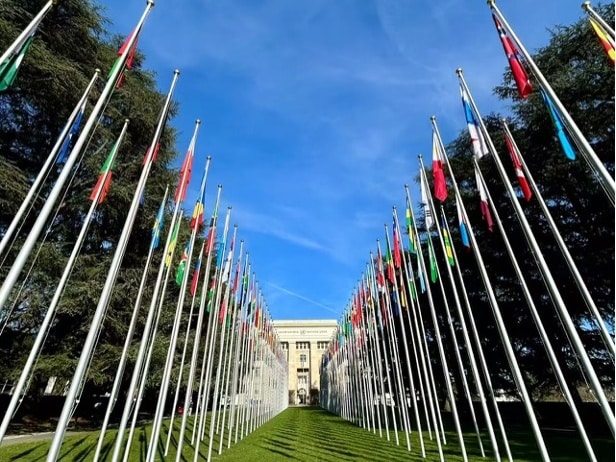
As of 2025, DKU has officially become a member of the United Nations Sustainable Development Solutions Network (UN SDSN), which operates under the auspices of the UN Secretary-General. By joining the world’s largest knowledge network, DKU aligns itself with a global mission to advance sustainable development.
Initiated and established in 2012 by former UN Secretary-General Ban Ki-moon and leading economist Jeffrey Sachs, the UN Sustainable Development Solutions Network (UN SDSN) works to advance sustainable development through education, research, policy analysis, and global cooperation. By bringing together an extensive network of higher education institutions, civil society, UN agencies, governments, and the private sector, the SDSN promotes and facilitates a multi-stakeholder approach to sustainable development.
Across the world, the UN SDSN has attracted more than 2,000 member institutions, including some of the world’s most renowned research universities working on sustainability issues, such as Harvard University, Yale University, Sciences Po, McGill University, the University of British Columbia, etc. As a member of this global network, DKU has access to a rich pool of intellectual resources and an international platform that fosters knowledge exchange - serving as a catalyst for innovation. This membership also opens up opportunities for collaboration with other institutions in research, education, sustainable development, and more.
By joining the UN SDSN, DKU demonstrates its commitment to sustainable development and aligns itself with the global sustainability movement. The SDSN China Hub is hosted by Tsinghua University’s Institute for Sustainable Development Goals, which organizes monthly SDG information sessions to raise awareness among stakeholders. Currently, only six universities on the Chinese mainland are members of the UN SDSN, including Tsinghua University, New York University – Shanghai, East China Normal University, Shandong University, Shanghai Jiao Tong University, and DKU, which is proud to be among them.
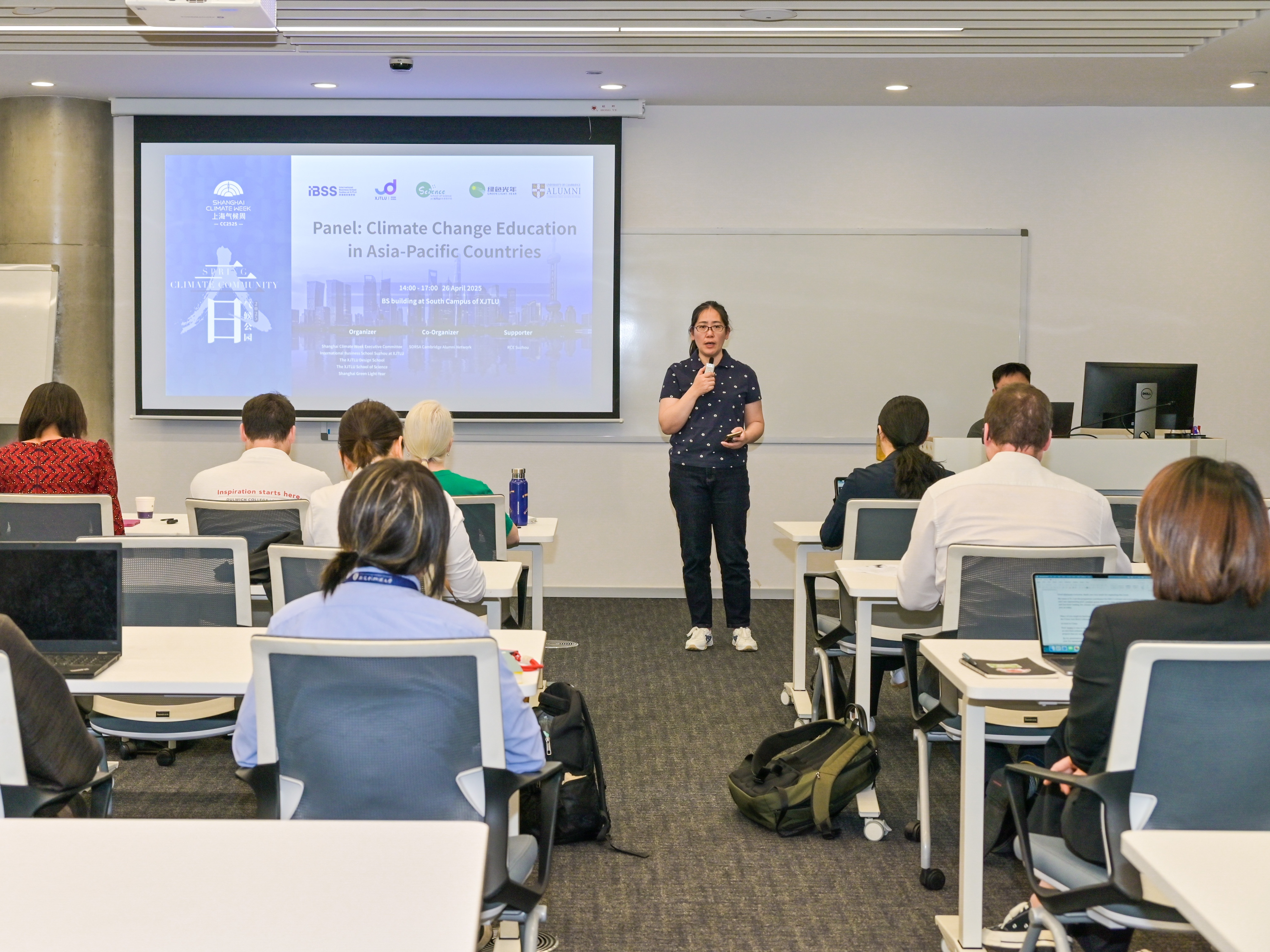
Since 2024, DKU has been a member of the Suzhou Regional Center of Expertise on Education for Sustainable Development (RCE). The RCEs meet regularly to share experiences and updates on each institution’s recent developments and progress in sustainability education.
The RCEs were created as an outcome of the Ubuntu Declaration signed in 2002. An initiative of the United Nations University established to support the United Nations Decade of Education for Sustainable Development (2005–2014), it called for all educational and scientific organizations to join forces and mobilize global talents in the education sector for sustainable development.
The RCEs recognize that each community has different social, cultural, and economic dynamics. They operate under the guidance of the United Nations University Institute for Advanced Studies, which conducts research on sustainability education and provides frameworks, best practices, and techniques for them to translate into concrete local actions.
Currently, besides DKU, the RCE Suzhou network includes other joint venture education organizations such as Xi’an Jiaotong-Liverpool University, Suzhou Industrial Park Learn-Will Cultural Exchange Center, and the Dulwich College Suzhou, and many more local higher education institutions, secondary schools, and grassroots organizations. DKU can leverage its membership in the Suzhou RCE to develop partnerships and share initiatives to engage local education institutions on sustainability, thereby contributing to the local community.
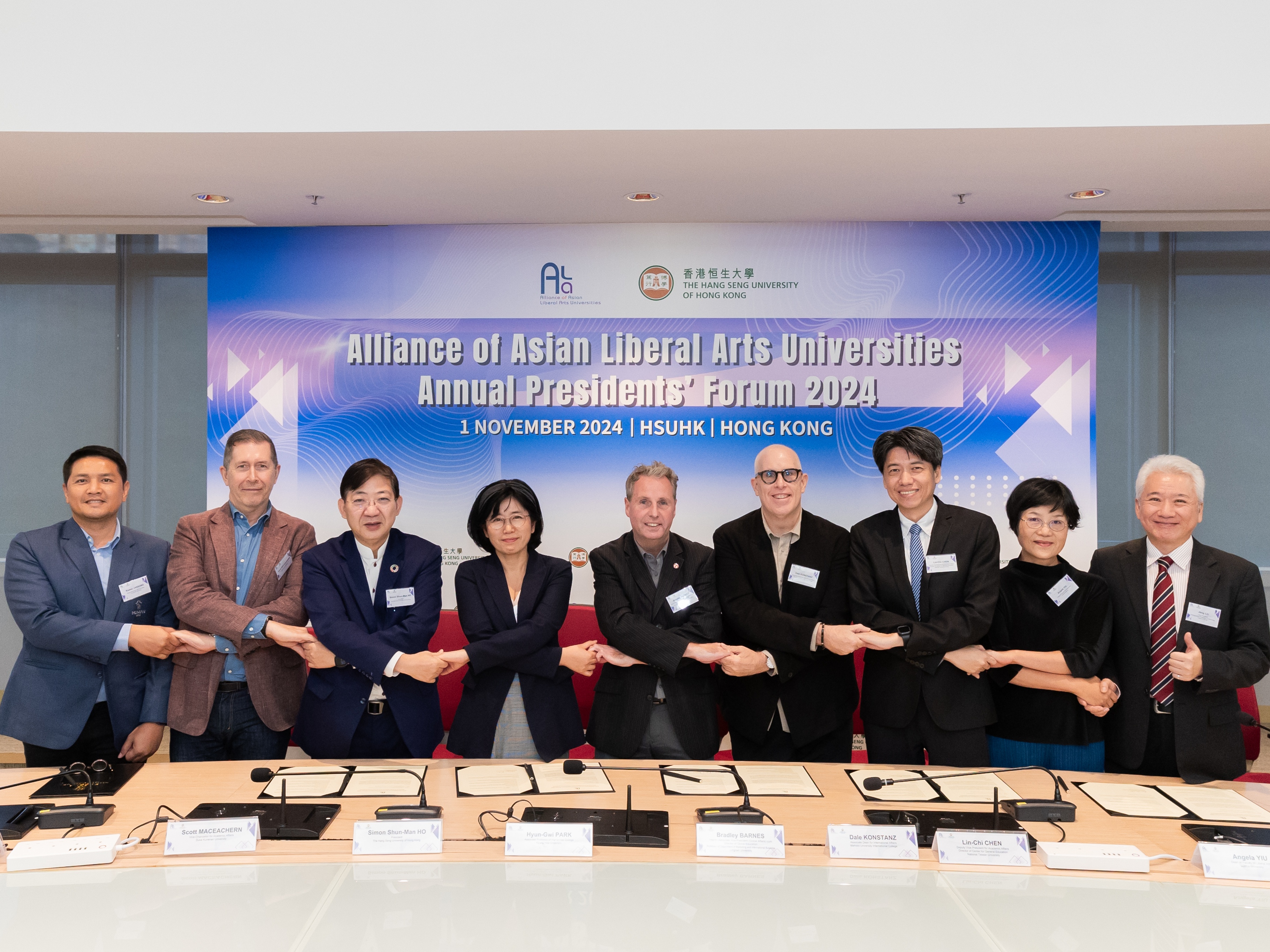
As a founding member of the Alliance of Asian Liberal Arts Universities (AALAU) since 2017, DKU has been actively engaged with 29 other leading liberal arts institutions across Asia. Together, they are committed to cultivating future leaders and lifelong learners by sharing best practices, anticipating emerging global challenges, and fostering deep collaboration.
Recognizing that one of the greatest challenges facing humanity in the 21st century is environmental degradation, the Seventh Annual Presidents’ Forum of the AALAU adopted the theme: “Sustainability Leadership: The Role of Liberal Arts Education.” The forum was held at The Hang Seng University of Hong Kong on November 1, 2024, with DKU’s Vice Chancellor for Academic Affairs, Professor Scott MacEachern in attendance.
The 2024 forum was special. All member institutions participated in meaningful dialogue around pressing global challenges, such as climate change, geopolitical instability, and social inequality, and explored how liberal arts institutions can prepare students to address these issues. Central to these discussions was the role of higher education in cultivating sustainability leadership and building resilient, future-ready institutions. As a highlight of the forum, member universities signed a joint declaration reaffirming their shared commitment to advancing greener, more equitable, and sustainable societies. This declaration is a testament of AALAU’s collective vision of nurturing global citizens grounded in sustainability through advocacy, interdisciplinary research, community engagement, and global responsibility.
Special Note:
DKU will host the Eighth Annual Presidents' Forum of the AALAU from November 13–15, 2025, with an open call for proposals due by September 1, 2025.
For more information on how to get involved: https://www.dukekunshan.edu.cn/about/academics/annual-presidents-forum-2025/
